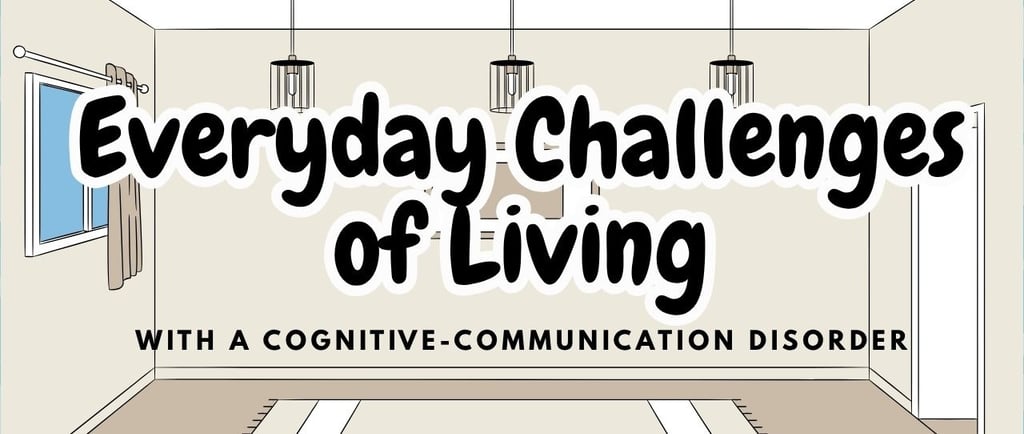Online Speech Therapy Platform
Everyday Challenges of Living With a Cognitive-Communication Disorder
Empathetic storytelling format to humanize the disorder for patients and caregivers.
COGNITIVE-COMMUNICATION DISORDERS
7/26/20252 min read


🧠 Introduction
Imagine struggling to remember familiar faces, losing track of a conversation mid-sentence, or being unable to organize your thoughts when speaking. These are not just isolated incidents—they are daily realities for individuals living with Cognitive-Communication Disorders (CCDs).
Often misunderstood and overlooked, CCDs arise from brain injuries, strokes, or neurological illnesses, affecting not just speech but memory, attention, problem-solving, and the ability to interact socially. In this blog, we’ll explore the real-life challenges people with CCDs face every day, from home to work to social settings—and how caregivers can support them.
📌 What Is a Cognitive-Communication Disorder?
A Cognitive-Communication Disorder refers to difficulties in communication caused by impaired cognitive functions. It’s not just about speech—it’s about the brain’s ability to process, retain, and organize information needed for effective communication.
Common causes include:
Stroke
Traumatic brain injury (TBI)
Brain tumors or infections
Dementia and neurodegenerative diseases
👣 Real-Life Challenges Faced by People With CCDs
1. Struggling With Everyday Conversations
Many individuals:
Forget what was just said
Lose track of topics mid-conversation
Have difficulty finding the right words
Speak in disorganized or unclear ways
This leads to frustration, embarrassment, and a tendency to withdraw socially.
2. Memory Lapses That Disrupt Daily Life
Forgetting appointments, names, or where things are kept
Missing important steps in tasks like cooking or managing medications
Repeating questions or stories without realizing it
These lapses can feel confusing or even frightening, both to the person and those around them.
3. Poor Attention and Concentration
Difficulty focusing on one task at a time
Easily distracted in noisy or busy environments
Trouble completing tasks from start to finish
This makes working, driving, or even watching a TV show exhausting.
4. Challenges With Planning and Organization
Inability to manage time or plan ahead
Forgetting parts of multi-step tasks (e.g., making a meal)
Losing track of personal belongings
This affects independence and creates reliance on caregivers.
5. Emotional and Social Impact
Feeling isolated due to communication difficulties
Depression or anxiety from reduced independence
Misunderstandings with friends and family due to unclear communication
Many people say, “I know what I want to say, but I just can’t get it out.”
🧑🤝🧑 How Caregivers Can Help
Use written reminders or visual schedules
Break down tasks into small, manageable steps
Offer support without taking over
Speak slowly and clearly
Be patient and give extra time for responses
Encourage participation in therapy
💻 The Role of Online Therapy
Platforms like Tellomeet make it easier for individuals with CCDs to access:
Speech-language pathologists experienced in cognitive rehab
Memory and attention training from the comfort of home
Caregiver education and support
Online therapy bridges the gap for those unable to attend in-person sessions and keeps treatment consistent.
🌟 Conclusion
Living with a Cognitive-Communication Disorder is more than a speech issue—it’s a daily battle with memory, focus, and clarity. But with the right support, therapy, and patience, individuals can regain independence and confidence.
Whether you’re a patient, caregiver, or professional, understanding these challenges is the first step to overcoming them.
